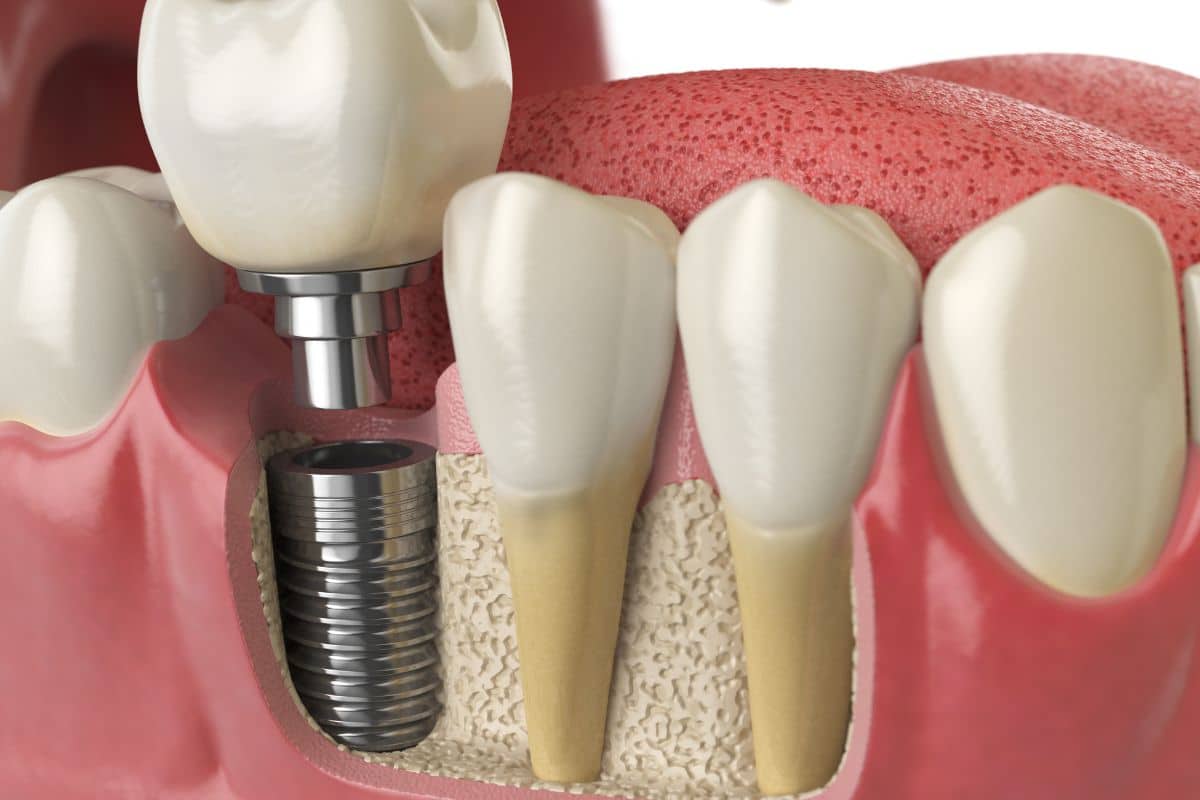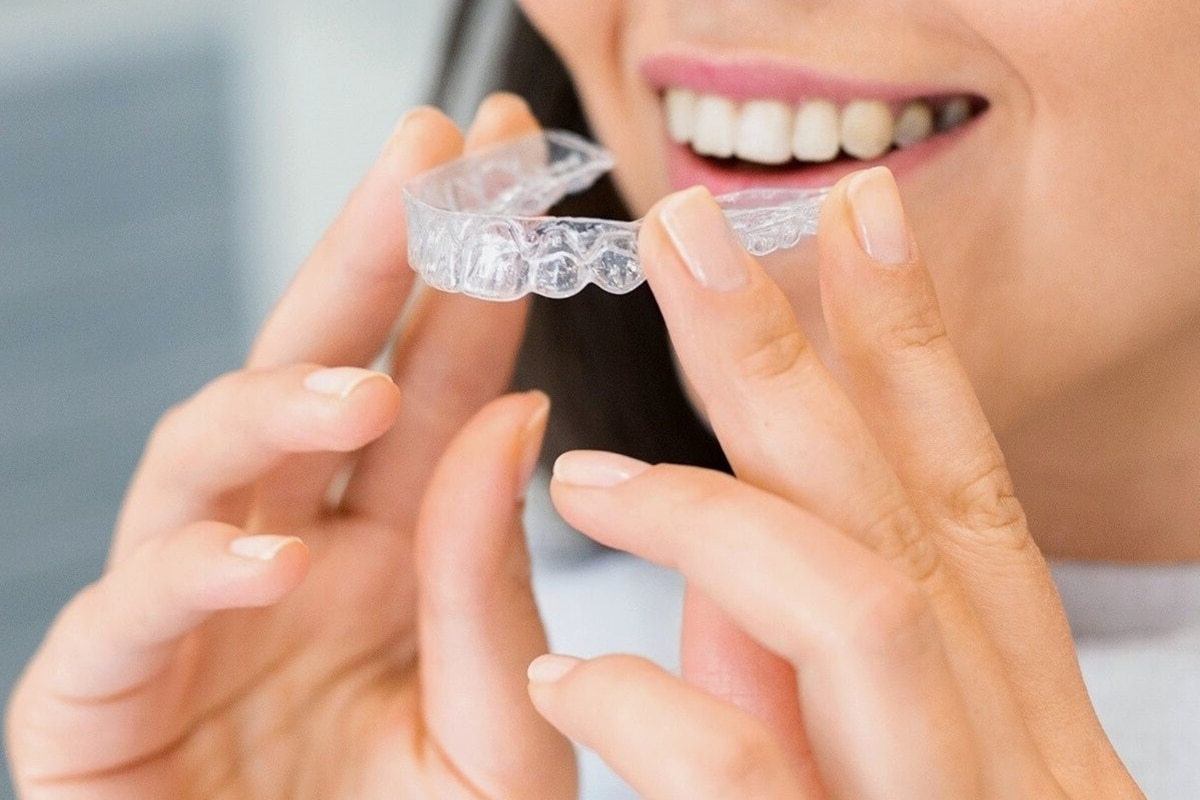Pay Online
Which Dental Veneers Type Is Best for Your Smile?

Dreaming of a dazzling smile that lights up a room? Dental veneers might be your secret weapon. These custom-made shells, bonded to the front surface of your teeth, can address a variety of concerns, from stubborn stains to minor chips and cracks. But with different types of veneers available, navigating your options can feel overwhelming. Fear not! This comprehensive guide delves into the world of veneers, empowering you to choose the perfect match for your unique smile.
Understanding Dental Veneers
A. What Are Dental Veneers?
Think of veneers as tiny works of art for your teeth. Crafted from thin shells of porcelain or resin, they’re meticulously designed to mimic the natural look and translucency of your teeth. Veneers are bonded to the front surface of your teeth, effectively masking imperfections and creating a flawless, aesthetically pleasing smile.
B. Different Types of Dental Veneers
The world of veneers offers a variety of options to suit your individual needs and preferences. Let’s dig deep here:
- Porcelain Veneers: The gold standard, renowned for their exceptional durability, stain resistance, and ability to mimic natural tooth enamel.
- Composite Resin Veneers: A more budget-friendly option compared to porcelain. They can be repaired relatively easily but may require replacement sooner.
- Lumineers Veneers: A brand of ultra-thin porcelain veneers ideal for those seeking minimal tooth modification.
C. Pros and Cons of Dental Veneers
While veneers offer a transformative solution for many, it’s important to weigh the benefits against potential drawbacks:
Pros:
- Enhanced Aesthetics: Veneers can dramatically improve the appearance of your smile by concealing chips, cracks, discoloration, and minor gaps.
- Increased Confidence: A beautiful smile can boost your self-esteem and confidence, impacting your social and professional life.
- Durability: Porcelain veneers, in particular, offer exceptional longevity with proper care.
- Stain Resistance: Porcelain veneers are highly resistant to staining, allowing you to enjoy your radiant smile for longer.
Cons:
- Cost: Veneers can be a significant investment, with porcelain generally being the most expensive option.
- Irreversible Procedure: Placing veneers typically requires removing a small amount of tooth enamel, making it an irreversible procedure.
- Maintenance: While durable, veneers still require proper care and may need replacement over time.
Porcelain Veneers: The Timeless Choice
A. Overview of Porcelain Veneers
Porcelain veneers have earned their reputation as the workhorses of the veneer world. Crafted from high-quality, thin shells of porcelain, they offer exceptional benefits:
- Durability: Known for their long-lasting nature, porcelain veneers can resist chipping, cracking, and wear for many years with proper care.
- Stain Resistance: Highly resistant to staining from coffee, wine, and other beverages that can discolor natural teeth.
- Natural Appearance: Experienced dentists can meticulously customize porcelain veneers to seamlessly blend with your surrounding teeth, achieving a natural, flawless look.
B. Benefits of Porcelain Veneers
Porcelain veneers offer a multitude of advantages for achieving a picture-perfect smile:
- Versatility: Porcelain veneers can address a wide range of cosmetic concerns, from minor chips and gaps to severe discoloration.
- Long-lasting Results: With proper care, porcelain veneers can last for a decade or even longer, offering a cost-effective solution in the long run.
- Enhanced Confidence: A beautiful smile achieved with porcelain veneers can significantly boost your confidence and self-esteem.
C. Considerations Before Getting Porcelain Veneers
While porcelain veneers are a fantastic choice for many, it’s important to consider these factors:
- Cost: Porcelain veneers are typically the most expensive option compared to other types.
- Irreversible Procedure: A small amount of tooth enamel needs to be removed for placement, making it irreversible.
- Sensitivity: There might be some temporary tooth sensitivity after placement, which usually subsides within a few days.
Composite Veneers: A Budget-Friendly Option
A. Overview of Composite Veneers
Composite resin veneers offer a more cost-effective alternative to porcelain veneers. Made from a tooth-colored resin material, they can be applied directly to the tooth in a single appointment, making the process potentially faster.
B. Pros and Cons of Composite Veneers
Pros:
- Cost: The most affordable option among veneers, making it a budget-friendly solution for smile improvement.
- Minimal Tooth Removal: Composite veneers often require minimal to no removal of tooth enamel compared to porcelain veneers.
- Reversible Procedure: In some cases, composite veneers can be reversed if needed.
- Quick Application: The application process for composite veneers can sometimes be completed in a single appointment.
Cons:
- Durability: Composite veneers may not be as durable as porcelain and may chip or crack more easily over time.
- Less Natural Appearance: While advancements have been made, composite veneers might not achieve the same level of natural translucency as porcelain.
C. Comparison Between Porcelain and Composite Veneers
Here’s a quick comparison to help you decide between porcelain and composite veneers:
| Feature | Porcelain Veneers | Composite Veneers |
|---|---|---|
| Material | High-quality porcelain | Tooth-colored resin |
| Durability | Excellent | Good, but may require replacement sooner |
| Stain Resistance | Excellent | More prone to staining |
| Cost | More expensive | Most affordable option |
| Tooth Removal | Requires minimal removal | May require minimal to no removal |
| Appearance | Highly natural-looking | May not achieve the same level of natural translucency |
| Application Process | Requires multiple appointments | May be completed in a single appointment |
Lumineers : The Minimally Invasive Choice
A. What Are Lumineers?
Lumineers are a brand name for a specific type of ultra-thin porcelain veneer. They offer a unique advantage: minimal tooth alteration.
B. Advantages of Lumineers
- Minimal Tooth Preparation: Due to their thinness, Lumineers require minimal to no removal of tooth enamel, making them ideal for those who want to preserve more tooth structure.
- Natural-Looking Results: Lumineers are crafted from high-quality porcelain, offering a natural and aesthetically pleasing look.
- Quick Application: The application process for Lumineers can often be completed in a single appointment.
C. Potential Drawbacks of Lumineers
- Cost: Lumineers can be comparable in price to traditional porcelain veneers.
- Durability: While durable, Lumineers might not be as strong as traditional porcelain veneers, especially for severe chips or cracks.
- Limited Applications: Lumineers may not be suitable for all cosmetic concerns, particularly deep discoloration or significant structural issues.
Choosing the Right Veneer for Your Smile
A. Factors to Consider When Choosing a Veneer
With a variety of veneers available, here are key factors to consider when making your decision:
- Desired Outcome: Do you prioritize long-lasting aesthetics and durability, or is minimal tooth modification your primary concern?
- Budget: Veneer options range in cost, so consider your financial limitations.
- Severity of Concern: The type of veneer best suited for you depends on the severity of your cosmetic issue.
- Lifestyle Habits: If you consume stain-inducing beverages frequently, porcelain veneers might be a better choice.
B. Consultation with Your Dentist
A qualified dentist is your best resource when choosing veneers in Elgin. During your consultation, discuss your smile goals, concerns, and budget. Your dentist will assess your teeth and recommend the most appropriate veneer type for you.
C. Making the Final Decision
Don’t rush into your decision. Weigh the pros and cons of each veneer option based on your unique needs and preferences. Ask your dentist questions and ensure you feel completely comfortable with your choice.
FAQs:
Porcelain veneers can last 10 to 15 years, while composite veneers generally last 5 to 7 years with proper care.
Porcelain veneers typically require removing a small amount of tooth enamel, making them irreversible. Composite veneers, in some cases, can be reversed if needed.
Porcelain veneers are highly resistant to staining. However, composite veneers are more prone to staining and require careful maintenance to maintain their color.
Recent Posts

Why Is It Critical to Replace a Missing Molar Even If It’s Not Visible When I Smile?

What Should I Do If My Child Knocks Out a Permanent Tooth in Elgin?

Can Invisalign Fix Overbite? How It Solves Complex Dental Issues in Elgin, IL

How Does Thumb-Sucking or Pacifier Use Affect Teeth?


